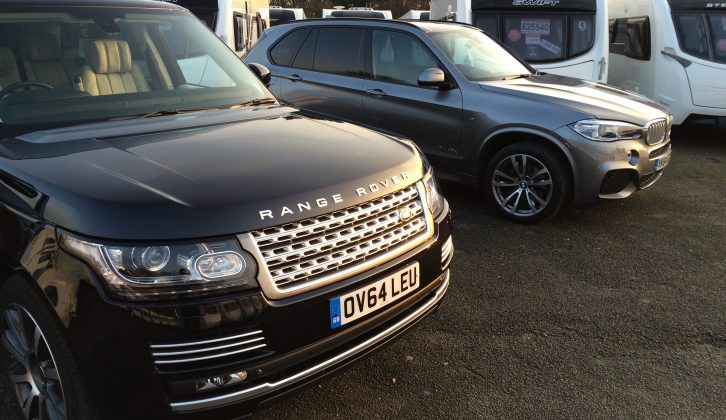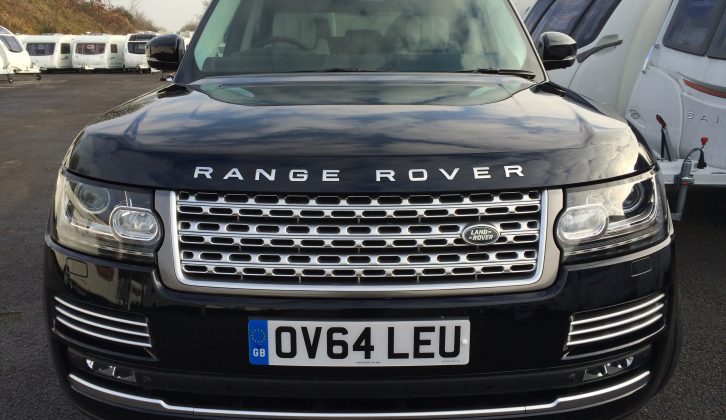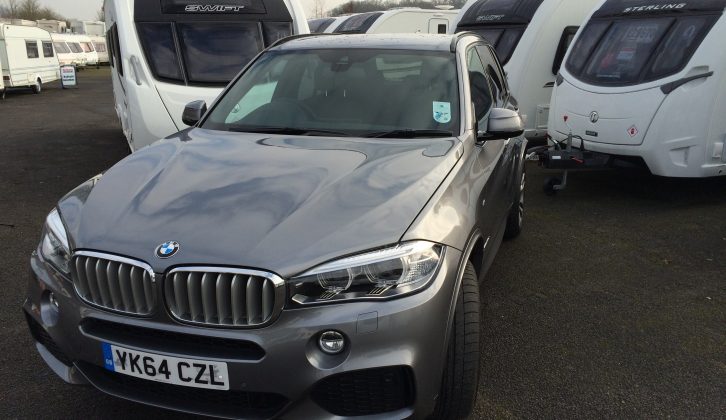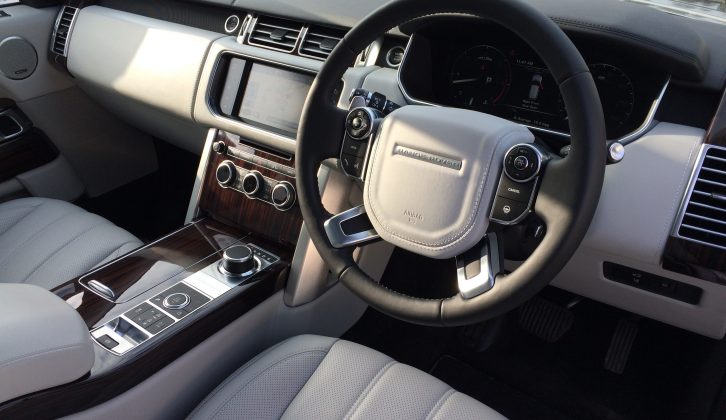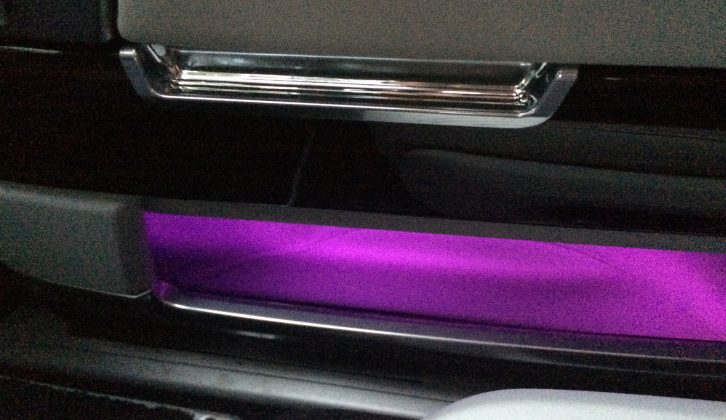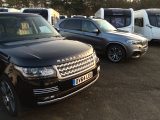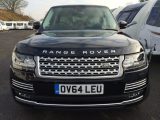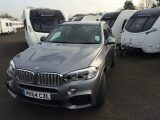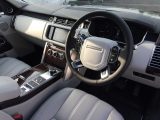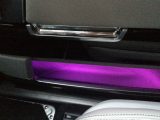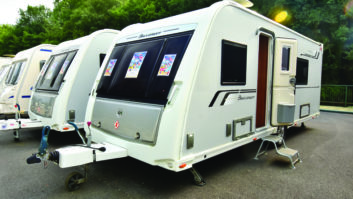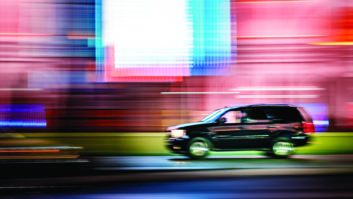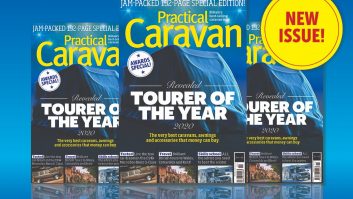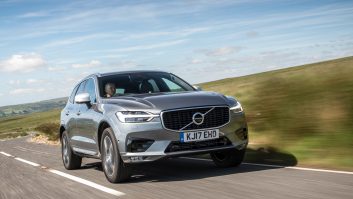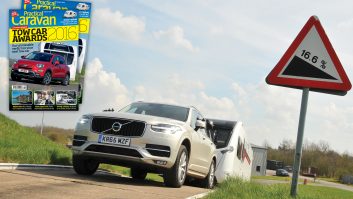Is the Range Rover badge worth paying more for? It’s a question I’ve been asking myself after towing with a Land Rover Range Rover and a BMW X5 last week.
Both are big 4x4s weighing more than two tonnes. Both have prestige badges, hugely powerful engines and five seats. Yet while the Range Rover SDV8 Autobiography costs £96,550, the BMW xDrive 40d M Sport retails for £55,610. That’s a difference of more than £40,000. And you can’t ignore that kind of figure when considering what tow car to buy for your caravan holidays.
Let’s be clear – although the BMW is the cheaper of the two, it takes very deep pockets to buy an X5. There are other two-tonne 4x4s which cost a lot less than the BMW, but that only goes to make the Range Rover’s price tag even more eye-watering. Does the Range Rover name really justify a price difference that could pay for two brand new twin-axle caravans?
Well, the Range Rover is heavier and more powerful than the X5. With a kerbweight of 2410kg, it weighs 225kg more than the X5. The V8 engine produces 334bhp and 546lb ft of torque, compared with the six-cylinder BMW’s 309bhp and 465lb ft torque.
It may not match the brawn of the Range Rover, but the X5’s lighter kerbweight compensates. When we took both cars to the test track the X5 pulled a twin-axle Swift from 30-60mph in 6.8 seconds, a fifth of a second faster than the heavier Range Rover. In truth, both cars are phenomenally quick and could probably tow a country house if you could squeeze a set of wheels underneath.
High-speed stability is exemplary, whether driving the BMW or the Range Rover. In normal towing the caravan just sits there, following along like a well-trained pet.
In an emergency lane-change, the BMW is the better of the two. It’s both lighter and carries its weight closer to the ground, so changes direction that bit more readily. However, both tow cars have plenty of grip and feel secure and safe when pushed.
There are other ways in which the BMW is the better car. Some are relatively minor, like the X5’s less clunky sat-nav and the clearer image provided by the reversing camera. Others are more significant, like an official combined economy figure of 47.1mpg compared with the Range Rover’s 32.5mpg.
In solo driving, the X5 feels like a more wieldy car. You never forget the sheer size of the Range Rover, although the high-driving position and good all-round visibility make it easy enough to judge its extremities. The X5 is 11cm shorter and 4cm narrower, but if anything the difference seems bigger from behind the wheel.
The Range Rover’s extra length is an advantage in terms of interior space. These are both roomy and comfortable cars, but the Range Rover has extra legroom for those travelling in the back – handy on long drives during caravan holidays. There’s an even more spacious long-wheelbase version if you’d rather read the FT and let someone else do the driving for you.
It’s not just bigger, the Range Rover is more luxurious. Every surface is covered in leather, wood or metal. Only the naff violet mood lighting fitted to our test car undermines the impression of quality – I think it belongs in a second-rate night club, not a luxury SUV.
In isolation, the BMW X5’s cabin is well finished and attractive, but next to the Range Rover it feels, well, ordinary. There’s not the sense of occasion you get from the Range Rover.
The BMW is also well beaten in terms of refinement. Expecting the X5’s engine to rev quietly is like asking Brian Blessed to whisper – it just isn’t going to happen. It’s not an unpleasant sound, but the Range Rover’s V8 is smoother and less obtrusive.
Then there’s ride comfort. Select ‘comfort’ mode on the BMW’s Adaptive M suspension and the X5 copes well with all but the sharpest bumps. But the Range Rover is pillowy soft in comparison, smoothing the road better than many luxury saloons.
But still, does that make the Range Rover worth that extra £40k? You could reduce the price gap by choosing a Range Rover Sport rather than a Range Rover, which is closer in size to the BMW, but the difference would remain over £27k.
By any objective measure, the Range Rover doesn’t do enough to justify the huge premium over the BMW. But car buying is often more an emotional process than an objective one. I can understand why someone with the means would spend the extra.
Both cars could probably tow a country house if you could squeeze a set of wheels underneath
